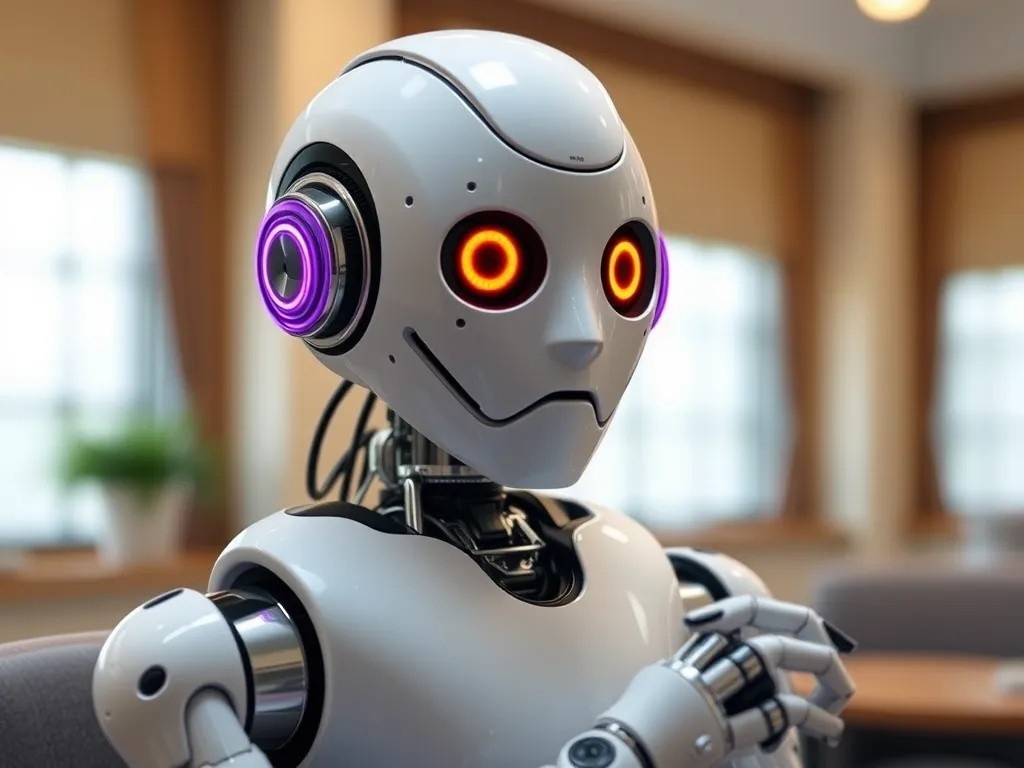In recent years, there has been a significant advancement in the field of Artificial Intelligence (AI) and Augmented Reality (AR). These technologies have become increasingly popular and have the potential to enhance virtual experiences in various fields such as gaming, education, healthcare, and...
Robot Friend Listens to Problems and Gives Better Advice Than Therapists

In an era where mental health support is more crucial than ever, an unexpected source of comfort and guidance has emerged: AI-powered robot companions. These sophisticated machines are listening to people's problems and offering advice that users claim matches or even exceeds what they receive from human therapists. While controversial, this development is reshaping our understanding of emotional support and mental health care.
The Rise of AI Companions
Robot friends represent a convergence of advanced artificial intelligence, natural language processing, and emotional recognition technology. Unlike chatbots of the past, these companions can detect subtle changes in voice tone, facial expressions, and body language, allowing them to respond with appropriate empathy and understanding.
How They Work
- Advanced language models trained on therapeutic techniques
- Emotion recognition through voice analysis and visual cues
- Personalized response systems that learn individual preferences
- 24/7 availability without judgment or fatigue
- Privacy-focused design with secure data handling
Why Users Prefer Robot Advisors
Many people report feeling more comfortable sharing intimate details with a robot than with a human therapist. The absence of human judgment, combined with complete confidentiality, creates a safe space where individuals can be completely honest about their struggles without fear of social consequences.
Unique Advantages
Robot companions offer several benefits that traditional therapy cannot match. They're available instantly when a crisis hits at three in the morning. They never forget previous conversations, maintaining perfect continuity across sessions. They don't experience burnout or bring their own problems into the conversation. Additionally, they're significantly more affordable, making mental health support accessible to people who couldn't otherwise afford therapy.
The Science Behind the Success
Research into AI therapy has revealed surprising findings. These systems draw from vast databases of psychological research, therapeutic approaches, and successful intervention strategies. They can instantly recall and apply techniques from cognitive behavioral therapy, dialectical behavior therapy, and other evidence-based approaches, selecting the most appropriate method for each unique situation.
Personalization and Adaptation
What sets modern robot companions apart is their ability to learn and adapt. They track what advice works for each individual and adjust their approach accordingly. If someone responds better to direct suggestions than open-ended questions, the system recognizes this pattern and modifies its communication style. This level of personalization often takes human therapists months to achieve.

Real Stories, Real Impact
Users across the globe share testimonials about how their robot companions have helped them through depression, anxiety, relationship issues, and career challenges. One user reported that their AI friend helped them recognize patterns in their behavior that multiple human therapists had missed. Another found that the non-judgmental nature of the robot allowed them to finally open up about trauma they had kept hidden for years.
Building Trust Over Time
The relationship between humans and their robot advisors often deepens over months and years. The AI remembers every conversation, celebrates progress, and provides consistent support through life's ups and downs. This continuity creates a unique bond that many users describe as genuinely meaningful.
Limitations and Ethical Considerations
Despite their success, robot companions are not without limitations. They cannot prescribe medication, handle severe mental health emergencies, or provide the human warmth that comes from genuine person-to-person connection. Mental health professionals emphasize that AI should complement rather than completely replace traditional therapy, especially for serious conditions.
The Human Element
Critics argue that relying on machines for emotional support could diminish our capacity for human connection. They worry about people substituting artificial relationships for real ones. However, proponents counter that for many individuals, robot companions serve as a bridge to human connection rather than a replacement for it.
The Future of AI-Assisted Mental Health
As technology advances, robot companions are becoming more sophisticated. Future versions will incorporate virtual reality, allowing users to interact in immersive environments. They'll detect mental health issues earlier through subtle behavioral changes and proactively offer support before problems escalate.
Integration with Traditional Care
The most promising development is the collaboration between AI systems and human therapists. Robot companions can provide daily support between therapy sessions, track mood patterns, and alert human professionals when intervention is needed. This hybrid model combines the best of both worlds.
Conclusion
Robot friends represent a fascinating evolution in mental health support. While they may not replace human therapists entirely, they're proving to be valuable tools for millions of people seeking guidance and emotional support. As society grapples with a mental health crisis and a shortage of qualified therapists, these AI companions offer hope for accessible, judgment-free support that's always available when needed most.



